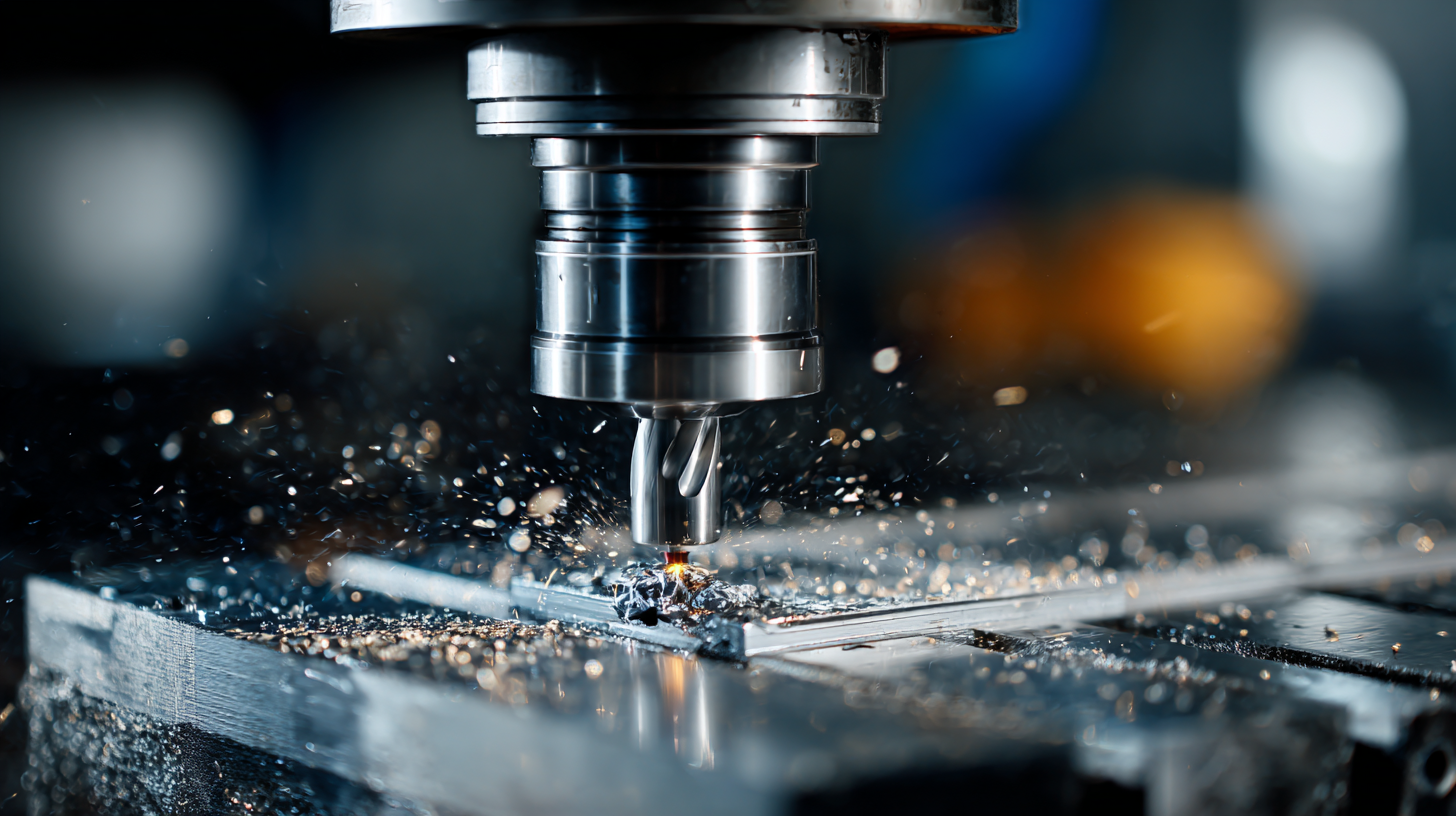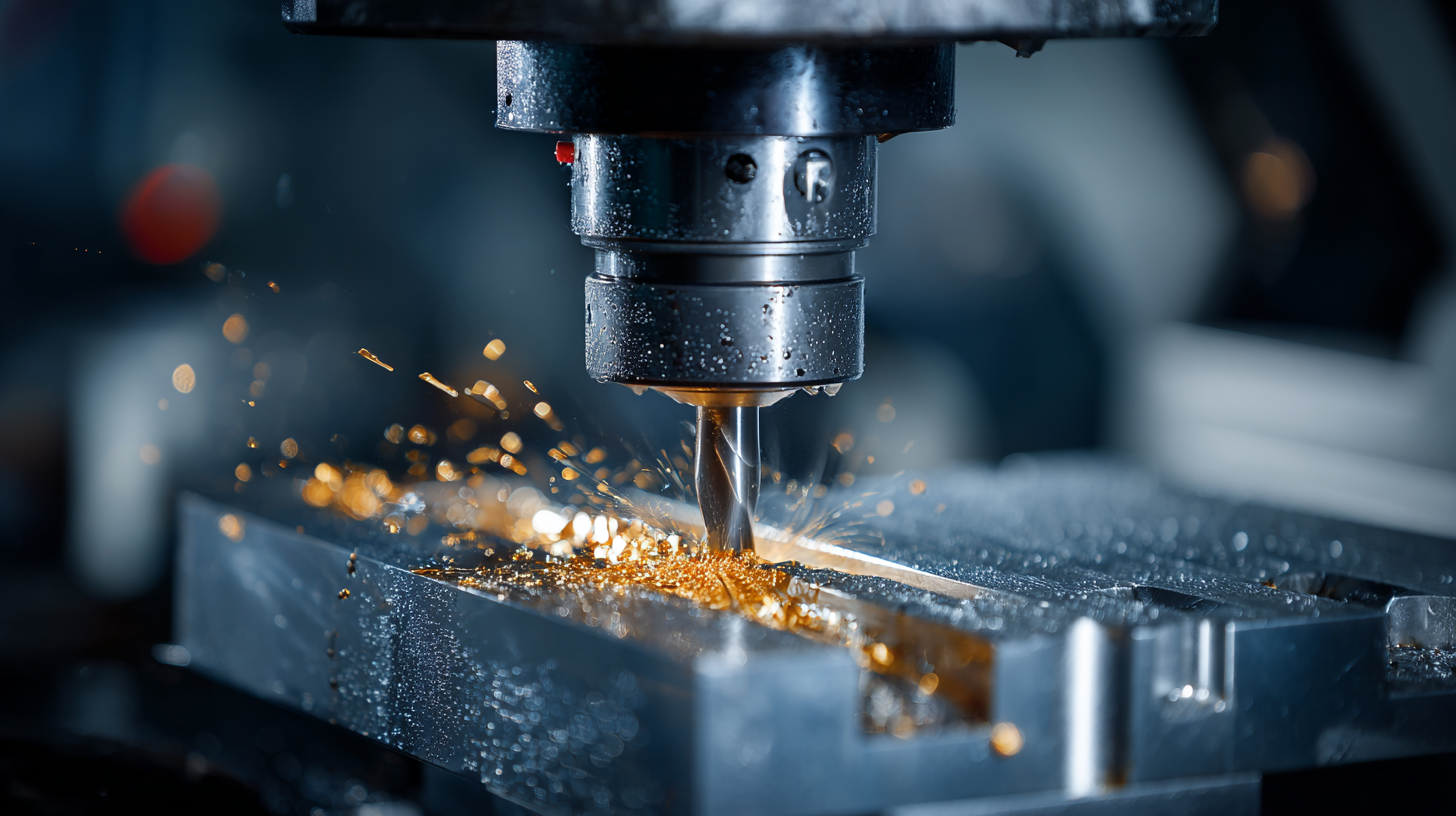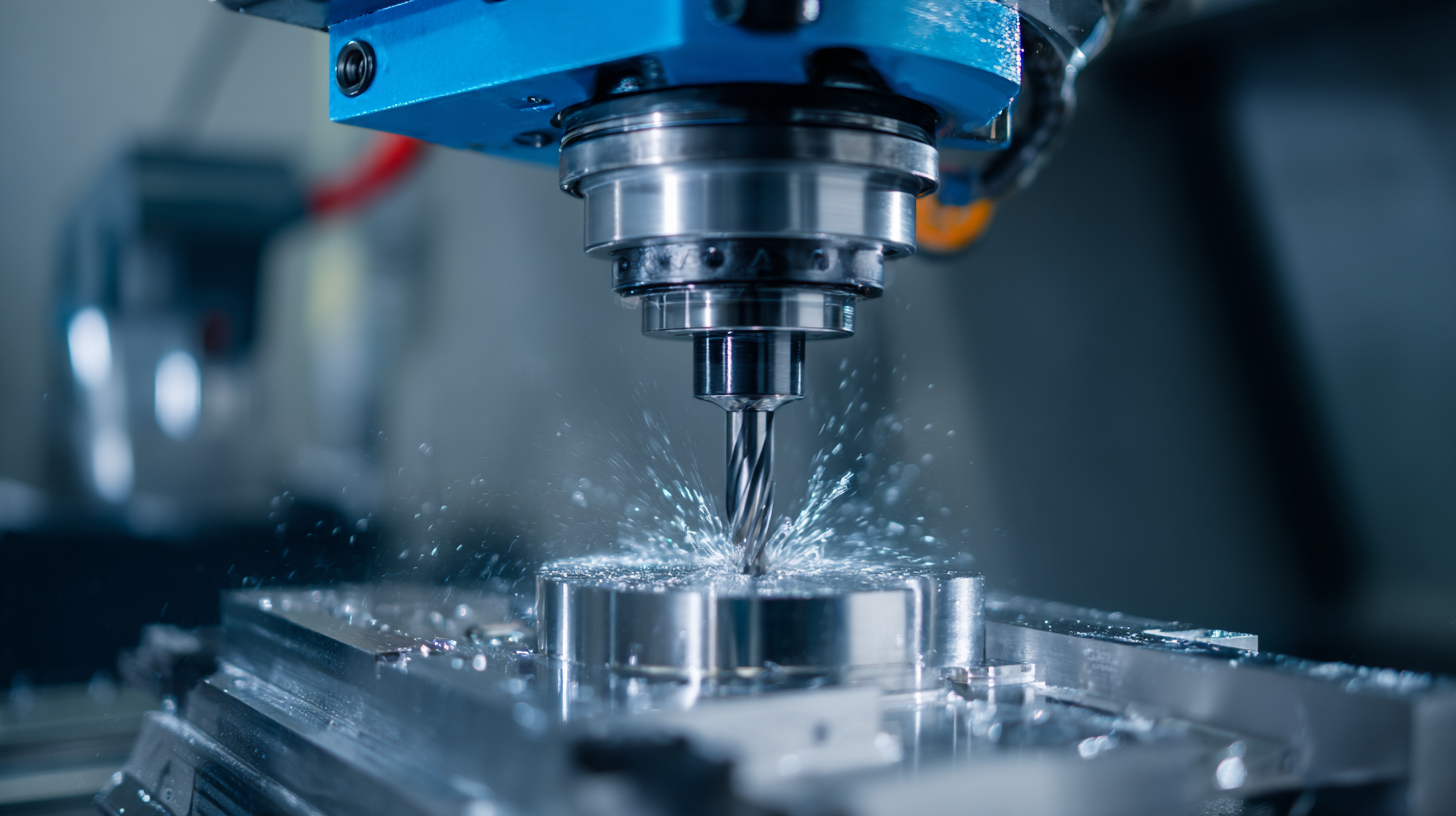Blog
Understanding Industry Standards for the Best Small CNC Machines for Metal Manufacturing
The evolution of manufacturing technology has significantly impacted the metalworking industry, particularly with the rise of small CNC machines for metal that are revolutionizing production processes. According to a recent market analysis by Research and Markets, the global CNC machine market is projected to reach $117.54 billion by 2027, with a notable increase in demand for small and versatile models suited for precision metal fabrication. These machines not only enhance efficiency but also reduce waste, aligning with sustainable manufacturing practices. In the context of “实力工厂,中国制造,出口全球”, understanding the industry standards for small CNC machines is essential for manufacturers looking to remain competitive in both domestic and international markets. This blog aims to explore the key industry standards that define quality and performance in this sector, ensuring businesses select the best small CNC machines for their metal manufacturing needs.

Benefits of Investing in High-Precision Small CNC Machines for Metalworks
Investing in high-precision small CNC machines for metalworks brings a multitude of benefits that can significantly enhance manufacturing processes. Firstly, these machines offer unparalleled accuracy, allowing craftsmen to produce components with intricate details and tight tolerances. This precision is crucial in industries such as aerospace, automotive, and medical device manufacturing, where even minor discrepancies can lead to considerable issues. Small CNC machines ensure that every cut, drill, and engraving is performed consistently, thus reducing the need for extensive rework and boosting overall productivity.
Moreover, high-precision small CNC machines contribute to improved efficiency in metalworking operations. They can operate autonomously, reducing the dependency on manual labor and the potential for human error. With advanced capabilities like adaptive feed rates and automated tool changing, these machines optimize workflow and maximize output. Additionally, investing in these technologies fosters innovation by enabling new designs and fabrication methods that were previously challenging due to equipment limitations, ultimately empowering businesses to stay competitive in a rapidly evolving market.
Investment Benefits in High-Precision Small CNC Machines for Metal Manufacturing
Advantages of Enhanced Efficiency and Productivity with CNC Technology
The CNC machine market is poised for significant growth, with projections indicating an increase from $101.22 billion in 2025 to $195.59 billion by 2032, reflecting a robust compound annual growth rate (CAGR) of 9.9%. This upward trend underscores the critical role that CNC technology plays in enhancing efficiency and productivity within the metal manufacturing sector.
As manufacturers adopt CNC machines, they experience considerable gains in operational efficiency. These advanced machines allow for faster production cycles, higher precision, and reduced waste, ultimately leading to cost savings and improved output. The shift from traditional manufacturing methods to CNC technology is not just a trend but a necessary evolution for companies aiming to remain competitive in a rapidly changing market.
Moreover, the integration of smart technologies with CNC operations promotes an even higher level of productivity. Businesses that leverage these advanced systems can optimize workflows and reduce downtime, allowing them to respond quickly to market demands. With the anticipated expansion of the CNC marketplace, investing in these technologies is crucial for manufacturers looking to thrive in the coming years.

The Role of Industry Standards in Ensuring Quality and Durability
Industry standards play a crucial role in ensuring the quality and durability of small CNC machines used in metal manufacturing. These standards, which encompass specific technical requirements and safety protocols, help manufacturers produce machines that not only meet performance expectations but also withstand the rigors of daily use. For instance, the rigor applied in the automotive sector, where manufacturers exhibit a relentless commitment to quality, serves as an exemplar for CNC machinery producers. Similar to how some automakers maintain stringent quality checks over decades, CNC machine manufacturers can adopt comparable practices to enhance the durability and reliability of their products.
Moreover, as market demands evolve, with increasing emphasis on eco-friendliness and customization, adhering to industry standards becomes increasingly vital. These guidelines facilitate the development of machines that meet modern consumer expectations for performance while also aligning with sustainability goals. Industries that embrace such standards are setting benchmarks for innovation and excellence, reinforcing the notion that commitment to quality transcends mere compliance; it signifies a dedication to creating lasting value in metal manufacturing, propelling the sector toward a future where high standards are the norm rather than the exception.
Cost-Effectiveness of Small CNC Machines in Small to Medium Enterprises
The cost-effectiveness of small CNC machines has made them indispensable for small to medium enterprises (SMEs), allowing these businesses to enhance productivity without a prohibitive investment. The CNC machines market is projected to grow significantly, reaching USD 170.4 billion by 2033, indicating a strong trend among SMEs to adopt automation and precision machinery. This boom reflects an increasing acknowledgment of CNC technology as a viable means to improve operational efficiency and product quality, which is crucial for maintaining competitiveness in today's market landscape.
**Tip 1:** When considering a small CNC machine, evaluate your specific needs based on the materials you work with. Understanding the types of materials and the complexity of the parts you produce can help in selecting the right machine that offers both cost savings and optimal performance.
Additionally, as SMEs increasingly adopt Industry 4.0 strategies, it's essential to integrate training and operational incentives effectively. By equipping staff with the necessary skills to utilize these machines, companies can maximize their return on investment and foster a culture of continuous improvement.
**Tip 2:** Invest in training programs that focus on both machine operation and maintenance. This not only enhances precision in production but also extends the life of your equipment, ensuring that you get the most value out of your CNC investment while minimizing downtime.

How Small CNC Machines Contribute to Competitive Advantage in Metal Manufacturing
Small CNC machines are increasingly viewed as integral to gaining a competitive edge in the metal manufacturing industry. With the global CNC metal cutting machine tools market projected to reach USD 252.67 billion by 2034, representing a robust 10.2% CAGR, these machines are critical for businesses aiming to enhance production capacity and flexibility. Their ability to deliver precise machining while maintaining economical operational costs positions small CNC machines as essential assets for metal manufacturers looking to streamline their processes.
As manufacturers face pressure to reduce lead times and elevate quality, the adoption of multitasking CNC machines has surged. These machines, which combine multiple functions in a singular platform, are becoming non-negotiable tools for shops prioritizing efficiency and speed. The rise of collaborative robots (cobots) further supports this trend, making automation more accessible to small and medium enterprises. Reports suggest that industries employing these advanced technologies not only optimize their production lines but also significantly improve their competitive standing in an increasingly digital landscape.
Understanding Industry Standards for the Best Small CNC Machines for Metal Manufacturing
| Machine Type | Spindle Speed (RPM) | Working Area (mm) | Max Material Size (mm) | Control System | Price Range (USD) |
|---|---|---|---|---|---|
| CNC Milling Machine | 8000 | 600 x 400 | 700 x 500 | G-code | 5000 - 8000 |
| CNC Plasma Cutter | 12000 | 1500 x 3000 | 1500 x 3000 | CNC Controller | 1500 - 3000 |
| CNC Router | 24000 | 1200 x 2400 | 1200 x 2400 | DSP Controller | 2000 - 6000 |
| CNC Lathe | 5000 | 300 x 1000 | 300 x 1000 | Fanuc | 4000 - 9000 |
